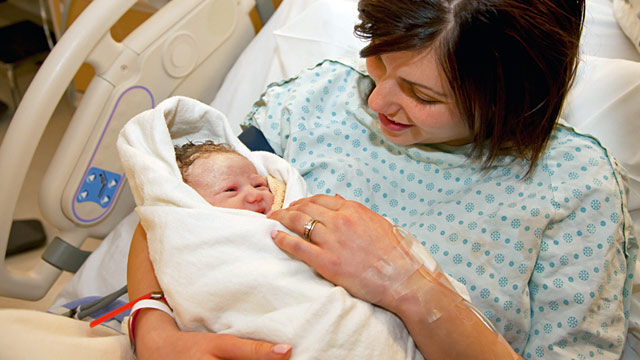Kiwi mums not breastfeeding for six months, despite WHO guidelines
 Stuff co.nz 1 December 2017
Stuff co.nz 1 December 2017
Family First Comment: Is this partly (not fully because there are exceptions) because we’ve made mothers too busy and also the pressure they’re under to return to work?
“New research based on the University of Auckland’s Growing Up in New Zealand study found 97 per cent of Kiwi babies are breastfed initially. But the number of infants exclusively breastfed drops to 53.4 per cent at age four months and again to 15.7 per cent at six months.”
ANALYSIS: Only 16 per cent of New Zealand mums are exclusively breastfeeding for the six-month period recommended by the World Health Organisation (WHO), research reveals.
New research based on the University of Auckland’s Growing Up in New Zealand study found 97 per cent of Kiwi babies are breastfed initially. But the number of infants exclusively breastfed drops to 53.4 per cent at age four months and again to 15.7 per cent at six months.
One Kiwi mum found breastfeeding so difficult she ended up “hating” her child, resenting that they were always attached to her.
Paediatrician and research report co-author Cameron Grant said the WHO guidelines were based on studies looking at the health benefits of breastfeeding predominantly in developing countries, but “there’s still good evidence in developed countries that exclusive breastfeeding for six months has a number of health benefits”.
We take a closer look at the research and talk to New Zealand mothers about their different experiences.
THE RESEARCH
The study followed 6685 single-born children from birth until the age of two.
Grant said many New Zealand mothers wanted to breastfeed but experienced difficulty, and doctors were keen to help facilitate those women.
“Some mums said they didn’t have enough milk, some said the baby wasn’t satisfied, some said the baby weaned itself, and some mums went back to work and it became too difficult,” he said.
Breastfeeding has many health benefits, including preventing breast cancer in women, Grant said. “Here in New Zealand it prevents infections, helps dental development in children and potentially has an effect on their intelligence.”
Studies comparing children who were breastfed with children who were not showed there were “certainly things in breast milk which appear to be really important for neural development”, Grant said.
“Breastfeeding is the best option. But there certainly are some mums who are unable to do that, and we do have good alternatives that are very safe. We will always work to ensure every child is well-nourished.”
The research also showed breastfeeding promoted higher intelligence quotient scores in children, healthy weight ranges, lower infectious morbidity, and reduced rates of diabetes.
READ MORE: https://www.stuff.co.nz/life-style/parenting/baby/breastfeeding/99342356/kiwi-mums-not-breastfeeding-for-six-months-despite-who-guidelines







